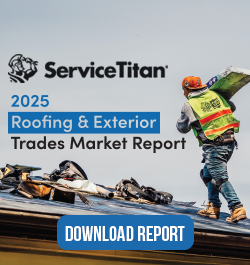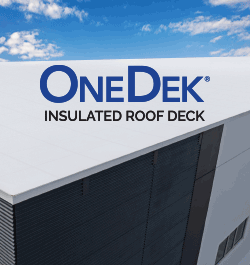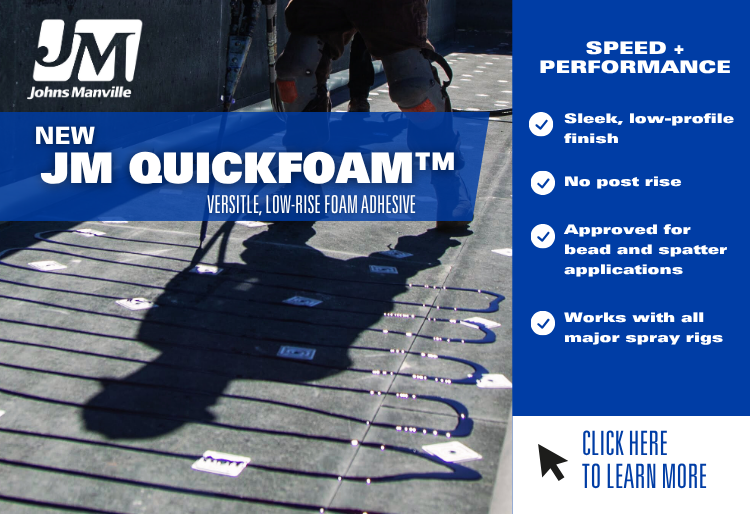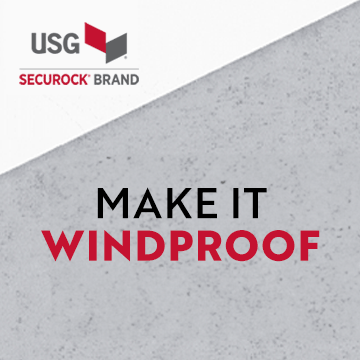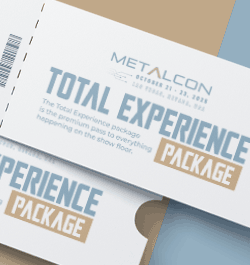BLOG- What's Up With Roofing Material Warranties?
« Back To Roofers TalkWhat’s Up with Roofing Material Warranties?
This Blog is more like a series of questions because I have my suspicions about roofing material warranties but before I mouth off I want to learn more. I certainly do not want to pick on any one company so please don’t reply using company names. But what’s up with materials warranties? Lots of small print. Do you know what they say? Do you explain it to the building/home owner?
Do you ever sell a certain manufacturer based on the roof warranty they offer? I am not talking about the quality of their products but based on what they are offering to the building/home owner.
Have you ever compared the different manufacturers warranties “apples to apples�
Do you really understand what all that fine print is about or do you just take the warranty at face value?
Some manufacturers are offering extended warranties for an additional fee. Are you selling much of those?
Are they all basically the same? It seems to me once one manufacturer makes a change they all fall in line.
Are warranties better than they used to be?
I was wondering if warranties make a difference to the owner. It seems to me a contractor has a certain amount of power when suggesting a brand to an owner. In residential for example, you show the sample of the brand you prefer. Do you ever tell them you are bringing them a particular product based on a better warranty?
Do you explain that you hope it lasts 20 years so you can call it a 20 year roof? I’m thinking the building/home owner believes if you say it’s a 20 year roof it will be warrantied for 20 years. In actuality in most cases it’s prorated down to nothing. I think owners are surprised to find out that their shingles will be replaced if their roof fails but not the labor to put it back on. Lots of fine print.
Seems to me if there is a warranty issue you can get caught in the middle of a mess. So a warranty should matter to you too. You might have to fix some stuff on your dime or look bad. After all, you recommended that product in the first place. What made me think of it was that I just read about a homeowner suing the roofer because the roof failed and the manufacturer went out of business.
All good questions I think. Seems to me the warranty is a big piece of your product offerings. Tell me how you feel.
I agree with OLDSCHOOL. I own a roofing company in ND and cover most the state. My company is a Certified GAF roofing installer. I don't do as much roofing due to selling and management duties but I train my employees to install the product correctly. We are able to offer a 50 warranty on material defects which came about due to the Certainteed lawsuit. This does enable me to sell more roofs but I also need to ensure that the product is installed correctly and the home has the proper ventilation. I also must install proper ice & Water and I use the shinglemate for the felt. My company installs between 100 - 150 square per week and we have done this for several years. I can say we have not had many problems. Only problems are weather related... Too cold or too windy and shingles have not have enough time to seal in warm conditions. I my opinion. the manufactures are coming out with these Lifetime warranties in hopes that the roofing installers install incorrectly or that a hail storm will void any warranties. It is very easy to find installation errors which could void any warranties. In my opinion with the volume or product my company installs if we do have any problems the manufacture is more eager to help us out so we keep pushing their product.
You gotta nail on them nail lines to get any warranty. Imagine that!
twill59 Said: Are you getting paid for the trip tinner? :)No charge since he gave me the job. I told him I'd just add him to the list and see when I can fit him in.
Just got off the phone. A potential client has a 12 y.o. home with fake slate on it. Seems some are missing, some broken, plenty of leaks too, and the company went under. Wants to know if I can make repairs. Only 7000 sq, ft. house. Probably 9000 sq. ft. roof. I'm going, but I did tell him to plan and expect to replace the whole thing. He's not a happy camper, but we've all been there and seen this on more than one house. Anybody here have any doubts about what's going to happen? :dry:
Part two of Michael's post...
One of the things that is not stated in the fine print, but rather implied by it, is the desire to keep roofing professional. This is why the manufacturers have certification programs for the contractors that use their products. IF YOU ARE GOOD TO YOUR CUSTOMERS, THEY WILL CONTINUE TO BE YOUR CUSTOMERS. By giving the roofers that use their products a certification, they are effectively providing an endorsement/seal of approval to help the roofer with their business, which will generate customer loyalty and allow both parties to prosper. The roofing industry has a bad rap. Roofers have a stereotype...the word roofer, for many people, brings to mind the stereotypical used car salesman, with meth-mouth and a pickup truck. This had to come from somewhere...and it does.
One of the problems with the roofing industry is that there are barriers to success, but no barriers to entry. Anyone with a ladder and some signs can call themselves a roofer, but how many of them really know what they're doing? When people in an industry who don't know what they're doing prosper, everyone else in the industry suffers. So, Cleetus put on your roof and he told you that you got a 30 year roof. Well, now your roof leaks and a manufacturers rep comes out to look at your warranty claim on a leaky roof and sees that Cleetus stepped in the roof with empty beer cans and slap stapled on half the roof because he ran out of nails and guess what...you're SOL.
Which brings up two more aspects of warranties: There is rarely remediation without representation and the other stuff on your roof that the manufacturer doesn't make. THE MANUFACTURER IS ONLY RESPONSIBLE FOR PROVIDING A WARRANTY ON THE COMPONENTS OF THE ROOF THAT THEY MANUFACTURE! This means the shingles, ridge cap, starters, ice and water shield & ridgevent (if it's theirs). Typically felt & ridgevent are made by companies that the manufacturer will approve for use in their systems. For the most part, as long as felt, ice & water shield and ridgevent meet certain testing codes, you're fine. What you need to be wary of is vents and flashings because they do not carry the same warranty as the other products in the system. The manufacturer is not responsible for flashing failure. This is why you should always replace flashings. The same holds true for caulking. Most caulking is good for a period of 7-12 years, but it's closer to 7 years. If the chimney flashing wasn't replaced when the roof was and the chimney leaks into house, the manufacturer is not liable. The same is true for pipe, furnace, plumbing and fan exhaust flashings...if they are not installed correctly, sealed properly or replaced when they should be, then the manufacturer is not on the hook for it.
The other element I mentioned above-remediation without representation can be a real kicker. Manufacturers have representatives. These are salespeople and they investigate warranty claims. The manufacturer reserves the right to inspect any roofs on which a warranty claim is filed, which means that when a warranty claim is made, a local rep will go and investigate the claim to assess its validity. If it is found that the roof was installed incorrectly, there is no warranty because incorrect installation voids the warranty, and therefore, the warranty claim will not be honored.
What can really make this a kicker is when a roofing manufacturer decides to focus on lumberyards and big-box stores &/or decides to drop its residential representation in a market. This is a kicker because lumberyards and big-box stores don't specialize in roofing products, which means that their employees typically don't know much about what they're selling and often times don't know who to contact when something goes wrong with the shingles they sold. This problem can become even worse if all they have to contact are the corporate offices. If this is the case, the homeowner or the installer must fill out a claim form, take pictures of the roof and mail two shingles to the corporate offices where it will be determined if the claim is valid. Trying to figure out the status of a warranty claim through this channel is like trying milk a brick wall, you won't get anything and you'll end up bashing your head against it. You'll be lucky if you even hear back from them.
There are other things that go into it as well. Benchmarking is a huge element to consider. The manufacturer has to meet the standards set by the competition, while at the same time differentiating themselves from their competition. All manufacturers now have a LIMITED Lifetime warranty on their architectural shingles. So the fine print of the warranty is where they differentiate themselves from their competition. A manufacturer who's "Lifetime" shingle becomes a 40 year shingle when it is installed on any building that is not a single family home, inhabited by the owner as a primary residence, becomes a lot less attractive when compared to manufacturer that will provide a 50 year warranty on any building, regardless of ownership, occupancy, and use. The same can be said of the prorating aspect of the warranty. All warranties prorate, but would you rather have shingles that cover the full cost of labor and materials for 15 years or 10 years? I realize how ridiculously long this post is, but warranties aren't exactly fun to read.
I don't know if anybody will even read this whole thing, but I hope that people do because warranties are something that are far too often simply taken at face value. One thing you have to remember about fine print is that the fine print is what million dollar legal battles are fought over. Please take my word for it, the more of the fine print you read, the better off you'll be.
Mike Connelly Jr.
I am posting this response on the behalf of Mike Connelly, Jr. (screen name unknown) from Crown C Supply This will be in two parts because it is so long -
Alright, here's the deal with warranties. I have read shingle warranties ad nauseum and have to explain this to people every single day.
A warranty is only as good as the manufacturer that offers it and the roofer/roofing company that installs the product. Warranties, not just those on shingles, are to give the consumer piece of mind that the manufacturer stands behind their products and aren't just selling lemons. The small print is included for several reasons. One of the main reasons for small print in the warranty is to indemnify the manufacturer from contractor negligence/incompetence.
Manufacturers WILL NOT warrant their products if they are installed incorrectly. One of twill's posts above mentions a tear off where the plywood on a roof that has had two shingle roofs was in great shape, with minimal ventilation. That's great, but where is that house? Is it in a place where it is the same temperature year round or is it in a place where it's 110 degrees in the summer and below 0 in the winter?
Every single shingle manufacturer's warranty has a clause in it for ventilation. If the roof isn't properly ventilated, they won't warrant it because mold is one of the new hot button issues in the roofing industry and because the heat from an unventilated attic on a 100 degree summer day will cook the shingles to a crisp, not to mention the homeowner as well.
Going off of the warranty being honored only when the roof is installed according to manufacturer specifications. Think of it this way: A man drinks scalding hot coffee and burns out his throat. For the rest of his life he will not be able to eat solid foods. He sues the entity he purchased the coffee from for not warning him that the coffee was hot. The case goes to trial and the entity's lawyer displays the coffee cup in which the product is given to consumers, holds it up for the courtroom to see and on the cup it clearly states: Warning, this product is extremely hot. I use this example to demonstrate the issue of liability. Manufacturers don't get to choose who uses their products. In a perfect, idiot-free world, there would be no need for this. But unfortunately we don't live in that world, which is why manufacturers have to protect themselves from liability when people use their products incorrectly. If a manufacturer had to honor their warranty on every roof that was installed wrong, they would go out of business.
As far as selling a homeowner on a warranty, there are so many issues involved with that... it boggles the mind. YOU CAN EXPLAIN A WARRANTY TO A HOMEOWNER IN, OUT, UP, DOWN, FORWARDS & BACKWARDS, BUT IF IT IS NOT WHAT THEY WANT TO HEAR, THEN THEY ARE NOT LISTENING AND WILL GO THROUGH OTHER COMPANIES UNTIL THEY FIND ONE THAT TELLS THEM WHAT THEY WANT TO HEAR. You can tell a homeowner: I'm a certified installer, these are my credentials, this is the warranty, this is why the product I use is superior. Don't get me wrong, that's the way it should be done, but that doesn't mean squat if the homeowner is going to be selling the house in five years and wants the cheapest thing available put on the roof for as cheaply as possible.
You can show a homeowner that they have bad plywood on the roof and show them where it says in the manufacturer's warranty that they will not honor the warranty if the roof is installed over bad decking, the homeowner tells you to install the roof anyway because they aren't going to pay any more money than they already are. You beg and plead with the homeowner to let you replace the plywood because it will cost them exponentially more money in the long run when they are paying to have water damage fixed and mold remediated, but your cries fall on deaf ears. A year later, the roof leaks, causes unsightly water damage in the house and high drywall replacement costs. So who's to blame? According to the homeowner, it's everyone else's fault-because they're the customer and the customer is always right. Continued on next post...
"Hey tinner what about that Tru Slate stuff (ya know it hangs there) They did not improve the slate but they sure improved the marketing..... Comes w/ a 50 yr warranty.....who'd a thunk?"
It'll last as long as the plastic backer, or a good eough wind.
Real slate just lasts without the marketing.
"Back "in the day" you'd buy a 15 yr shingle that would last 30 yrs. Now you buy a lifetime shingle and let's hope it goes 20......" True statement Only problem with those old one, they looked so good at 20 years, it was hard to believe they were due to die. New ones look like death warmed over after 8 years.
Dang! You're right Twill! It sold me and I never did look back either! :)
It's marketing. If a 50 year roof is still performing 25-40 years down the road, it won't look very good. But it will be performing! Of course, the HO will want that torn off as it doesn't look good any more, and he will have to pay for that. That isn't going to be covered, or at least to any degree that will matter in the cost of replacing the roof.
Here's a relevant article.
Here's an article about underlay.
The execs at a major shingle manufacturer felt they needed to increase sales somehow. Memos were sent to all departments in search of ideas. Some months went by and a fellow in marketing wanted to present an idea. A couple, really. He met with the execs one day and said “Let’s sell felt. The only people in the market are Bird and JM.†The execs all spoke up and said their entire market share there was new construction! “Only builders buy the felt to keep their projects dry until the roofers come and install the shingles. The roofers are often installing our shingles without felt. And it can’t be used on a re roof. What the heck do we want to sell felt for? The only felt we need is the 12†rag for our shingles. There will never be a need or market for us there. It could open us up to some new liability! And it isn‘t used under tin! Follansbee will void their warranty if they find felt under tin. We can‘t sell it there. There isn’t a roof in the world that requires felt…. How are you planning on selling THAT?†Get out of here with that hair-brained scheme!†“Please! Just give me a minute and you’ll see the logic! Please!†“You have 10 minutes.†“Here’s the deal. Our 15 year shingles regularly last 17-22 years minimum. And our 5 year warranty never needs to be honored, right?†Nods, and “yeses†from the execs. ‘So?†“ We will need to market ourselves as a leader to be envied. Let’s offer a ’7 year’ warranty ’if’ installers use our felt under our shingles! It’s a win-win. The shingles will go the term with or without the felt, but we can open up a whole new market and give glossy brochures to dealers to hand to installers and it only costs us pennies. The installers will do our marketing for us! We’ll always be able to ‘prove’ installation error if any warranty issues ever occur anyway. We can’t lose….It‘s a win-win and we get a larger market share all around.†“Research is showing that anybody less than 50 year old gets caught up in the hype that glossy brochures, TV ads, and radio ads spout. Any glossy ads we print will be taken as gospel. And it’s real easy to brainwash people if we were to do TV ads. Ignorant people soak them up like sponges! Older people tend to take ads with a grain of salt and figure that if it‘s worth being on TV, it‘ll be announced during the news as a news item. They seem to know the difference.†“The established and older roofers will never fall for that line.., but we could give it a try for a limited period of time. It’s your job on the line though!†“No problem Boss. We’ve been looking hard into this and we believe some hard pressed companies will use the ploy to increase their sales. And the newcomers to the roofing industry won’t know any better anyway. We won’t tool up for this, we’ll order from other makers and have our names stamped on the rolls. If this takes off, we’ll see about tooling up to make it ourselves, maybe. Who knows for sure. I do believe we can even make a market for it in the metal roofing side of things. Bill, Bob, myself a couple of others are looking into now.†“Joe and a small team are working on their own time to see if they can come up with some form of sticky felt. They heard a rumor that a company is working on a product that can be used on eaves to help with ice-dam issues. If it’s as good as rumor has it, even jacklegs will be able to do roofs with too many leaks further helping us avoid nay warranty issues. If it has merit, we we can come up with a marketing gimmick for it too.†“Just think ‘underlay’ and we’ll market the term and use it all the time until people start forgetting the roof itself and the underlay becomes the priority. Like I mentioned before, there is plenty up sell potential here and no liability beyond the pennies on the dollar we’re already liable for anyway. How can we lose?†“OK, we’ll also have legal look into all facets before anything goes public! One slip and you’re fired!†“Remember, this will have nothing to do with roof performance, it’s all about marketing! â€The New buzzword will be ‘Underlay!’ We will be working on selling an underlay for other standard systems like EPDM,TPO, and the like. It’ll be a harder sell, but if they’ll buy the one idea, I believe that in time we can sell them the other.â€
When I sold a roof, I would always sell them as if there is no warranty, I based my recommondation on how well the shingle performed previous years.



